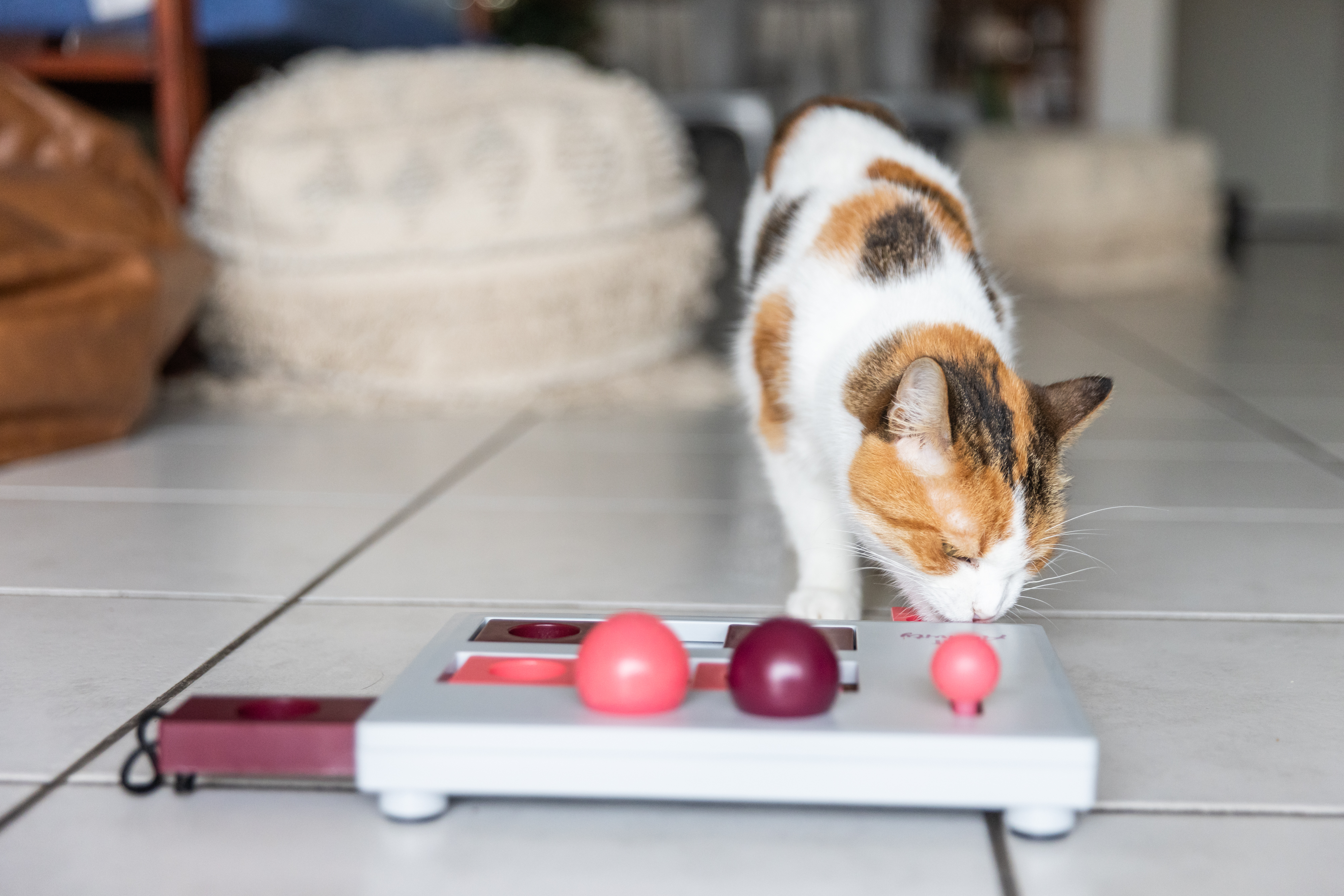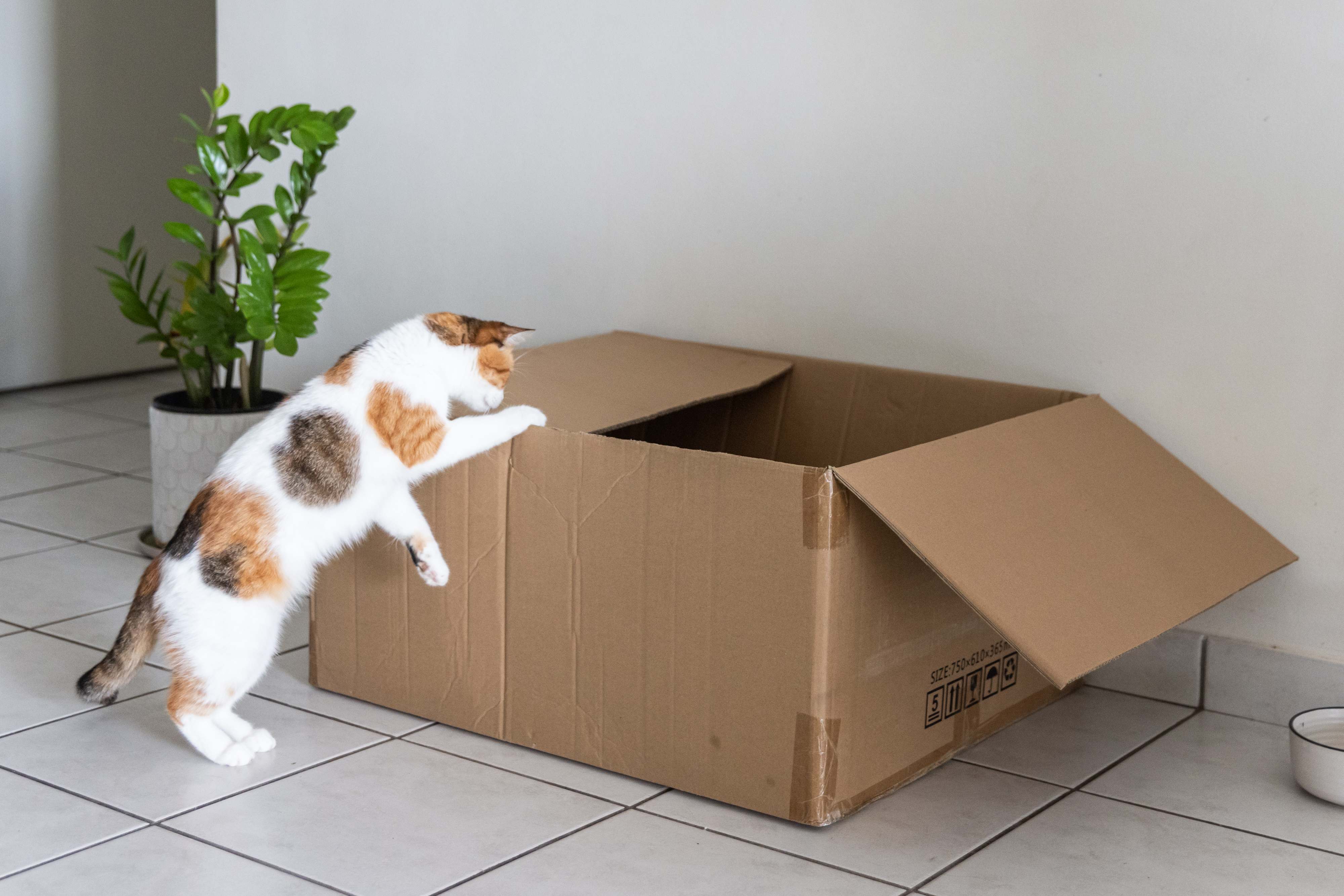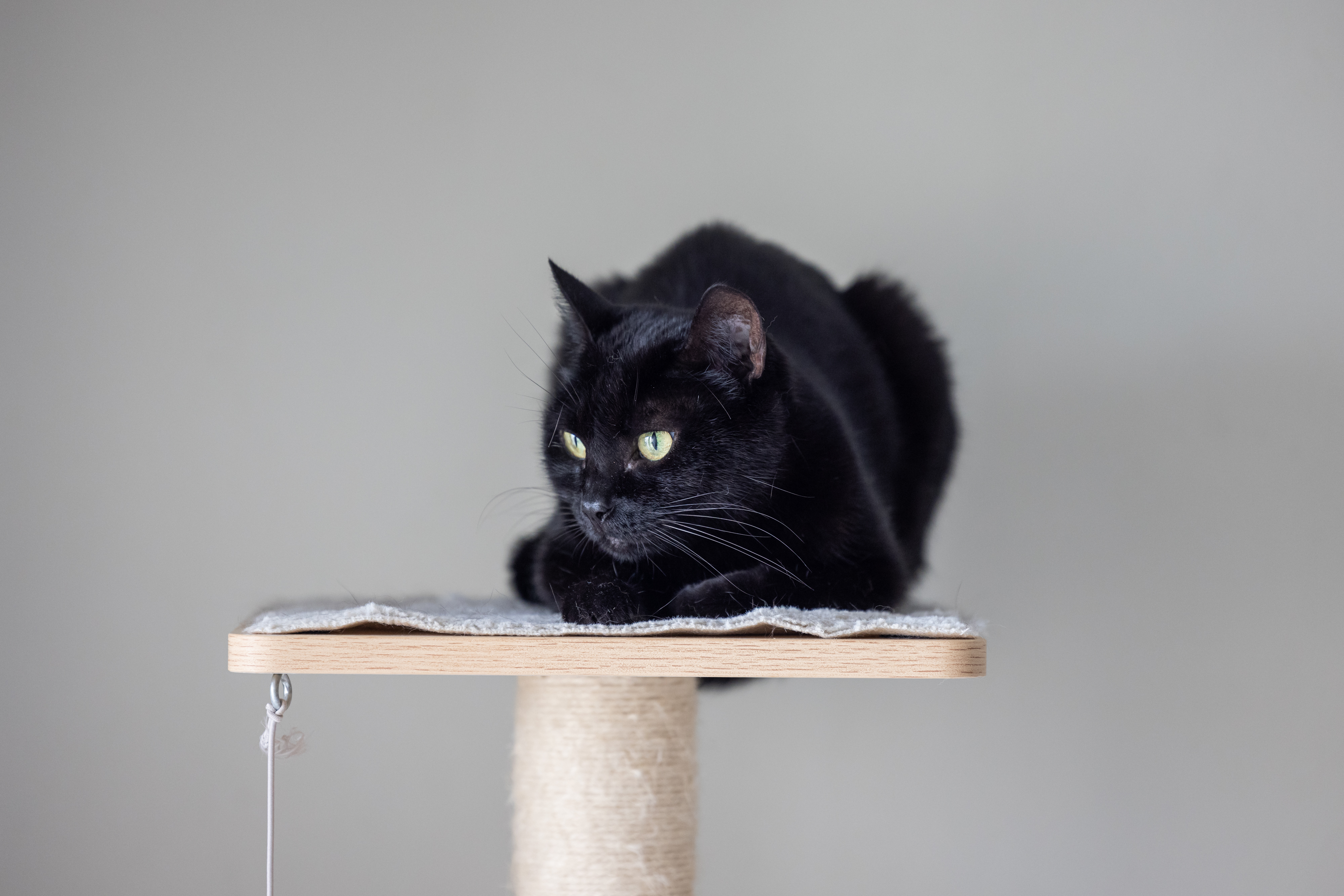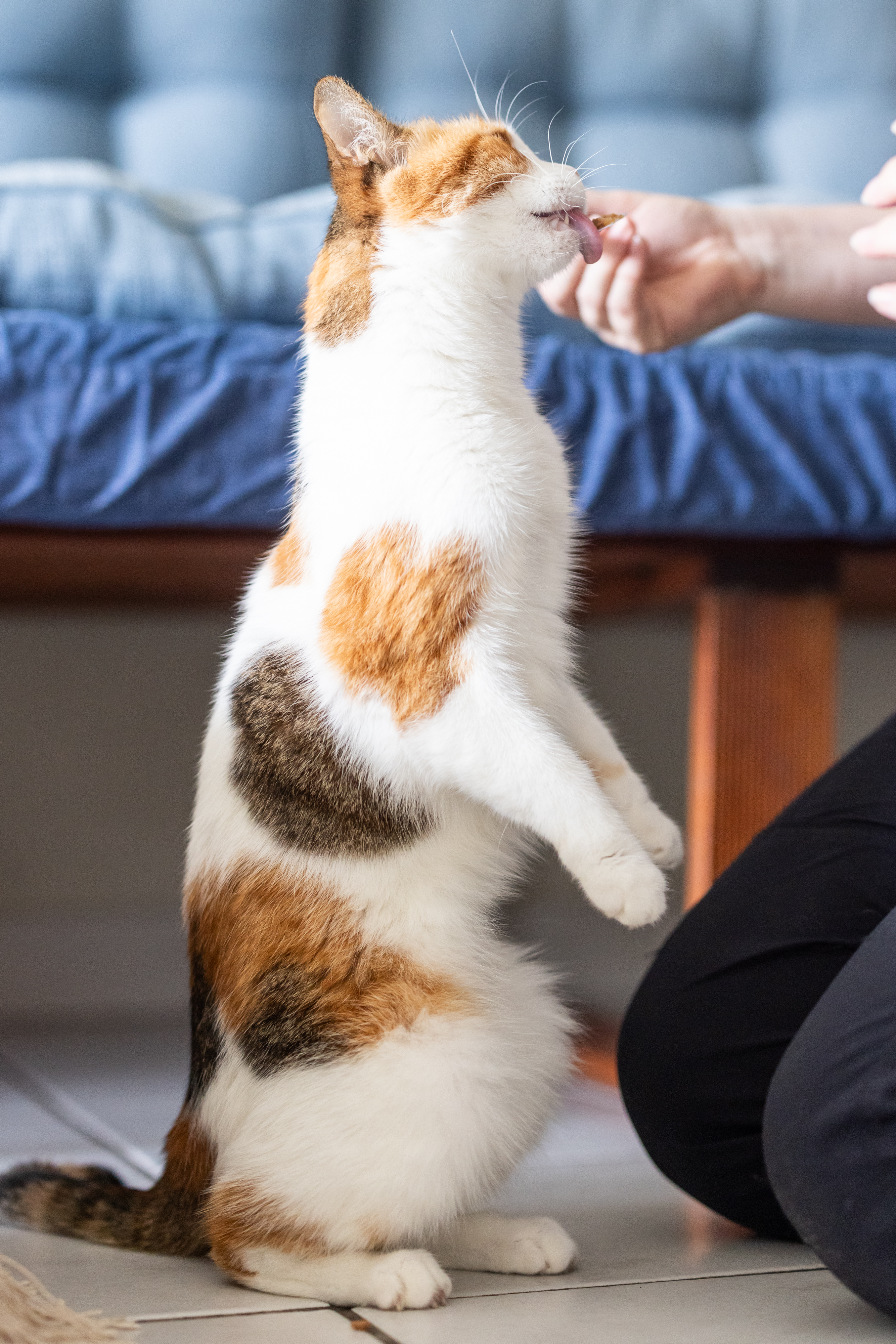City of Darwin is dedicated to help you keep your indoor cat healthy, happy, and well-behaved. Follow our Animal Education tips to become a responsible cat owner!
There are a lot of myths about cats. You may have heard that cats can’t be trained or need to go outside to be happy. But the truth is, a cat with enough mental stimulation can be just as happy living indoors, and it keeps them safe and healthy.
Why should you keep your cat indoors?
Did you know the average outdoor cat roams up to 2 hectares around their home? Some cats even travel over 4km! That’s a lot of space for your cat to get into trouble!
There are many risks for outdoor cats. Indoor cats tend to live longer as they are protected from hazards. Here are some reasons why keeping your cat indoors is a safer choice:
-
Even if vaccinated, outdoor cats can catch dangerous diseases.
-
Cats can get lost if they get scared or injured.
-
Cats can fight with other cats, which may result in painful, infected wounds.
-
Other animals or cars could harm or kill your cat.
Home is the perfect place for your cat
Learn more by watching this video
Watch the Kriol version here
Roaming cats can also cause problems for neighbours including disturbing other pets, spreading diseases, killing or injuring native fauna, damaging gardens and local flora, or going to the bathroom in other people’s yards. Letting your cat roam is against City of Darwin By-Laws and you could be fined if your cat is found outside and impounded.
By keeping your cat inside, you'll keep them safe, maintain good relations with neighbours, and avoid fines.
Cats and wildlife
City of Darwin is committed in contributing to the protection of wildlife biodiversity in the Northern Territory, where cats play an important role!
Have you ever wondered what your cat does when it’s outside? Cats are natural hunters, and they often hunt birds, reptiles, and other animals, many of which are important for the environment. In fact, cats are a major threat to many species, with some mammals even facing extinction because of cat hunting.
We need to protect both cats and wildlife. As a cat owner, it's your responsibility to ensure your pet doesn’t harm other animals. All animals matter, so let’s work together to protect them.
Find out more about feral cat impacts on the environment.
What can you do?
- 1. Get Your Cat Desexed
-
Desexing your cat helps prevent unwanted kittens and reduces their urge to roam. A desexed cat stays calmer at home and less stressed. Consult your vet for more information about desexing your cat, its benefits, and the cost in Darwin.
- 2. Get to know your cat and make a bond
-
Cats communicate through their body language, so it’s important to learn what they’re trying to tell you. Watch for signs that indicate when they’re happy, curious, or needing space.
When a cat is happy it stands in a balanced pose, with a relaxed face and ears in a natural position. Happy cats also sit in comfortable positions and lay down exposing their belly. This behaviour shows that the cat is serene, trusting, and comfortable with you.
On the other hand, if a cat is feeling discomfort, sick or worried, you might find it in a crouched position with the tail curved and hiding. Or, if a cat is angry or feeling threatened, it will show a flattened posture or arched position when standing, dilated pupils, tail tight to the body or wagging aggressively, and a tense open mouth. On many occasions the cat will raise its hair as a warning. This will give you clues on when to retreat to close contact.
Cats have a socialisation period that is very sensitive to social bonds. This period occurs from 2 weeks to 7 weeks of age. The sooner you start, the better, however; it is never too late! Understanding your cat’s behaviour will also lead you to understand their needs and building the bond between pet and owner. It will allow you to share time together and to respect the cat’s space when needed; cats are not pack animals and often need space for themselves.
To know more about cat communication and training contact the Animal Education Team.
- 3. Stimulate your cat's mind
-
Cats are clever and need mental stimulation to stay happy. Here are some fun ways to keep your cat’s mind active: Provide scratching posts and climbing frames for your cat to scratch, climb and explore. Offer interactive toys like lasers that keeps your pet moving and engaged. Challenge your cat solving puzzle toys and treat dispensers to get a prize. You could even build you own puzzle. Engage your cat in treasure hunts! Hide treats around the house for your cat to find while you’re away. Offer frozen treats like fish stock or plain yogurt to keep them hydrated and entertained. Try outdoors enclosures. If you have a garden, create a safe outdoor space where your cat can explore without risks. Give your cat a view of the outside world from the safety of home. Cats are naturally curious and love watching what’s happening outside. Your cat will enjoy having a bed or perch near a window where they can relax and observe the world.

- 4. Create a safe space
-
Cats need a quiet, cozy place where they can relax and feel secure. Make sure to provide high perches and hideaways, especially if you have other pets or young children. This is why cats love boxes! How about building a cat castle with boxes for your cat?

- 5. Little tray
-
Ensure your cat has a clean, private spot for their bathroom needs. Clean the litter tray at least once a day and keep it away from their food and water bowls.
If your cat is urinating or defecating outside the litter box you might want to change the litter type (cats often have preferences), move the litter to a different location away from the dining area and check if the litter is being kept clean. If the problem persists your cat might be stressed, anxious or dealing with a health problem; consult your vet as soon as possible. Additionally, make sure you have enough litter boxes to accommodate the number of cats in your household. The general guideline is one litter box per cat, plus an extra. For example, if you have two cats, you should provide three litter boxes to ensure each cat has access to one, along with an additional option for added convenience and cleanliness.

- 6. Feed them well
-
Ask a local vet to find the right diet for your cat and use food to stimulate their senses through different flavours and smells.

Stray Cats
Do you want to help stray cats? While feeding them may seem like a kind act, it can cause more problems. Feeding stray cats can attract more cats, lead to fights, and contribute to the problem of overpopulation. Cats can reproduce as early as 4 months old, and before you know it, the number of cats in your area will multiply! This could become a problem to the community and a health concern for the stray cats, Darwin’s residents, and other pets.
Instead of feeding them, you can help by reporting stray cats to the City of Darwin Council or local shelters. Or, if you’re able, consider adopting one of the cats you’ve been feeding. That will be a great act of contribution, and you would have a happy and healthy cat at home.
Feeding a cat? Adopt a cat!
Learn more through some video resources below:
Watch the English version here
Watch the Kriol version here
Local Pet Services Directory
There are a number of services available to Darwin residents to support them with their pets. Our services directory can assist pet owners find veterinary services, training and behaviour specialists, pet transport services, shelters and pet supplies.
More information
To know more about cats resources in Darwin contact the Animal Education Team.
